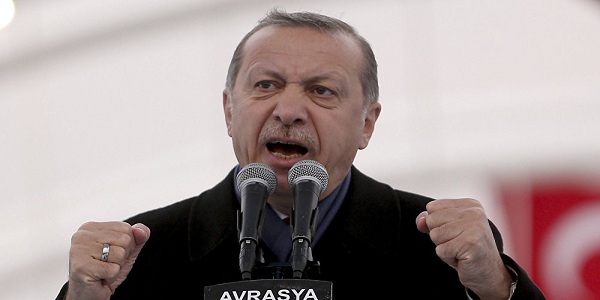Relations between the EU and Turkey have hit a new low over changes to the Turkish constitution which has led to diplomatic rifts between Ankara and several EU countries, including Germany and the Netherlands, with some politicians calling for an end to talks over Turkish accession to the EU.
Turkish president RecepTayyip Erdogan is holding a referendum, April 16, over controversial changes to the country’s constitution – effectively handing him more power – with a new executive presidency replacing the office of the prime minister.
In an attempt to gain support for his plans from Turkish citizens living in Europe – with significant numbers in Germany and the Netherlands in particular -Erdogan has been using politicians – and his ministers – to promote them in rallies in both countries.
However, some rallies in Germany have been canceled by the authorities and the Dutch have also banned Turkey’s Mevlut Cavusoglu from entering the country and preventing Turkish Family Minister from attending a meeting in Rotterdam where she was due to meet representatives of the Turkish community.
The issue has made Turkish-EU relations even worse than they have been since the signing of the EU-Turkish migrant deal, which was intended to stem the flow of migrants crossing from Turkey into Europe.
The deal is supposed to allow for the return of migrants refused asylum – or not claiming it – in Greece to Turkey. But this was contingent on accelerating Turkish accession into the EU. However, it has already stumbled over human rights issues and a clampdown by Erdoğan on the opposition and the media – especially following the attempted coup, July 2016.
SPUTNIK
R.S

